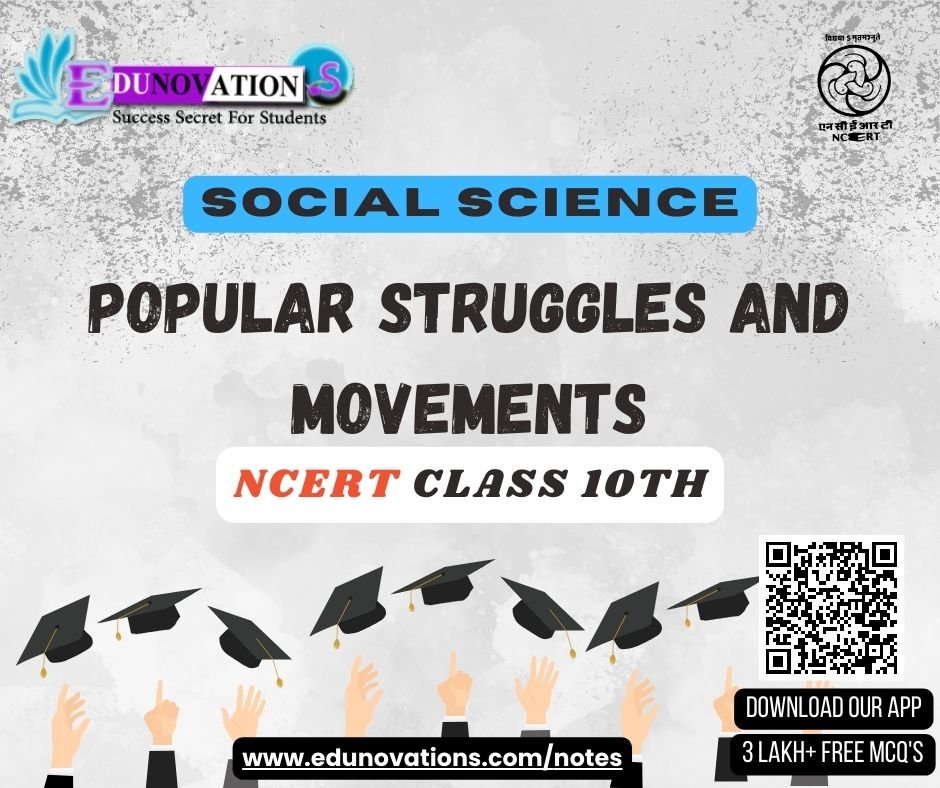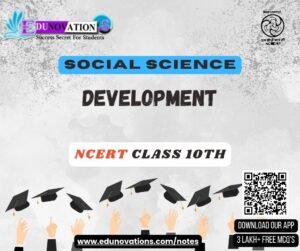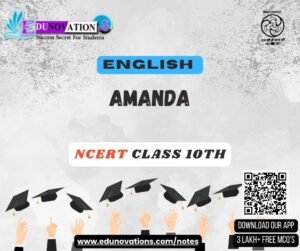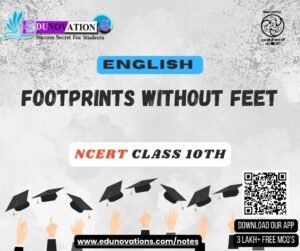NCERT Class 10 Social Science MCQ : Popular Struggles and Movements
Embark on a journey through the pages of history with our carefully curated Multiple Choice Questions (MCQs) page on “Popular Struggles and Movements.” This resource is an invaluable aid for students and aspirants, featuring exam-tested questions meticulously gathered from previous year papers across diverse sectors, including UPSC IAS and more. Dive into the realm of societal transformations, exploring the various popular struggles and movements that have shaped the course of history.
Key Features:
- Exam-Tested Questions: Rigorously selected MCQs offering a nuanced understanding of popular struggles and movements, closely mirroring the patterns of questions found in reputable exams.
- Historical Exploration: Delve into the motivations, leaders, and impacts of significant social movements, enriching your knowledge and analytical skills in the context of historical changes.
- Strategic Exam Preparation: Equip yourself with a comprehensive understanding of the dynamics of popular struggles, a crucial aspect for excelling in various competitive exams.
Engaging with these MCQs not only enhances your historical acumen but also provides a unique perspective on the societal dynamics that have driven change.
NCERT Class 10 Social Science : Popular Struggles and Movements MCQ – NCERT Class 10 MCQ
Question:
Which one of the following statements is correct regarding ‘sectional interest groups’?
Question:
What was the main reason of Bolivia’s Water War? Choose the most appropriate answer from the following:
Question:
Which one of the following political parties came to power in Bolivia in 2006?
Question:
Which one of the following was the main aim to start movement on April 2006, in Nepal?
Question:
Which of the following is not a movement?
Question:
In 2006 the party that came to power in Bolivia was
Question:
People’s struggle in Bolivia was
Question:
Nepal witnessed an extraordinary popular movement in
Question:
Pressure groups and movements have deepened democracy by
Question:
In most cases the relationship between political parties and interest groups is
Question:
Which of these is one of the agencies of organised politics?
Question:
Which one of the following is not true about the pressure groups?
Question:
Who won Bolivia’s water war?
Question:
Which financial agency/organisation pressurised the government to give up its control of municipal water supply?
Question:
When did King Gyanendra dismiss the then prime minister and dissolve the Parliament?
Question:
Which of the following is a movement?
Question:
Which of the following is not a movement?
Question:
Which political party supported the protest in Bolivia, came to power in Bolivia in 2006?
Question:
Which of the following organisations/ institutions did not join the protest movement?
Question:
Which party spearheaded the mass upsurge in Nepal?
Some Important Links








